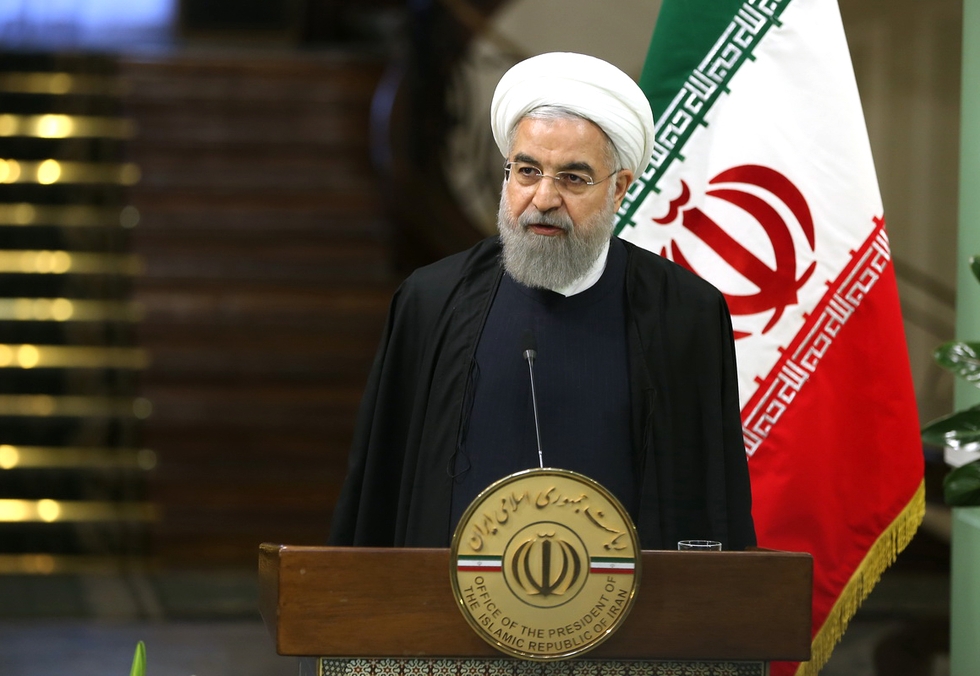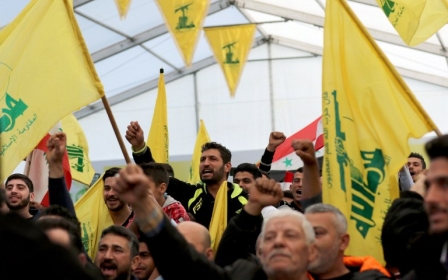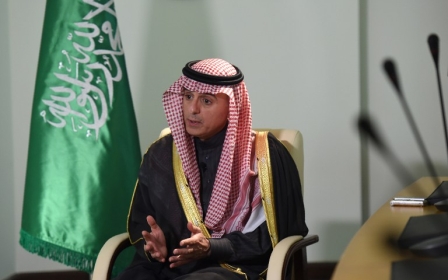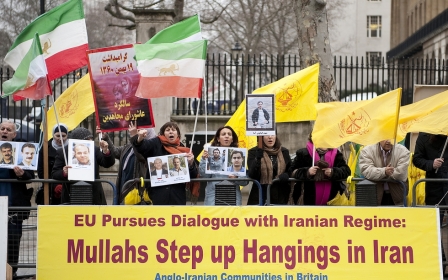Iran rejects 'biased' UN human rights report
Iranian officials rejected a critical UN report on human rights and said the Islamic republic is preparing a new charter for citizens rights

A handout picture provided by the office of Iranian President Hassan Rouhani on March 14, 2016 (AFP)
Published date: 16 March 2016 10:48 GMT
|
Last update: 8 years 8 months ago
Iran on Wednesday rejected as biased and political the latest United Nations report on human rights in the Islamic republic.
In 2015, executions in the country were at "the highest rate in over two decades," with at least 966 put to death, the UN's top expert on human rights in Iran, Ahmed Shaheed, told its Human Rights Council on Monday.
In 2014, 753 people were executed in Iran.
Shaheed added that "at least 73 juvenile offenders were reportedly executed between 2005 and 2015," 16 of them in the past two years alone.
"At least 160 others are awaiting the same fate on death row," he told the UN's top rights body.
In Tehran, the UN's conclusions drew a strong reaction.
The UN Special Rapporteur's report on Iran is "biased, discriminatory, and prepared with political motives," foreign ministry spokesman Hossein Jaber Ansari said in a statement.
"Through exploiting international human rights mechanisms," the report "reduces human rights to a political dispute."
Iran is "committed to its obligations with regards to promotion of human rights in compliance with the constitution and religious values," and is preparing a charter on citizens rights, he added.
In a report published in January, global rights watchdog Amnesty International slammed Iran as the world's most prolific executioner of offenders convicted of committing crimes as juveniles.
Shaheed also addressed a legal loophole that allows Iranian judges to assert full criminal responsibility of minors and accordingly punish girls as young as nine and boys as young as 15.
He urged the Iranian government to raise the age of criminal responsibility to 18 years and equalise it regardless of gender.
New MEE newsletter: Jerusalem Dispatch
Sign up to get the latest insights and analysis on Israel-Palestine, alongside Turkey Unpacked and other MEE newsletters
Middle East Eye delivers independent and unrivalled coverage and analysis of the Middle East, North Africa and beyond. To learn more about republishing this content and the associated fees, please fill out this form. More about MEE can be found here.




